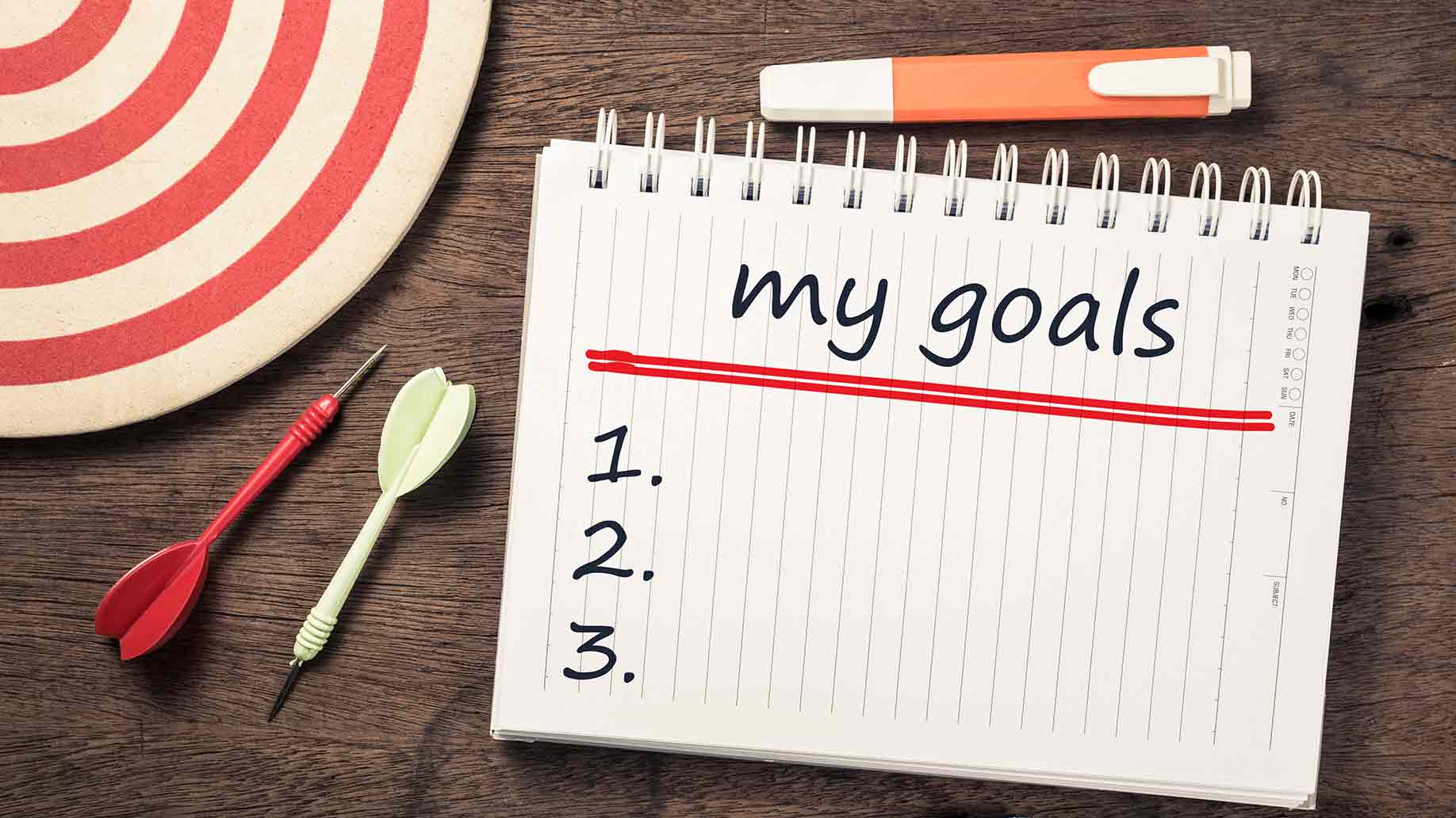Do you wish you knew how to control your emotions and stay calm in stressful situations? Would you like to learn how to control your feelings of anger and frustration so you didn’t snap at friends and colleagues when things don’t go your way?
The ability to understand and control your emotions is called emotional intelligence, or EQ. And, the higher your EQ, the more likely you are to succeed in your career, communicate more effectively at work, have better relationships, and live a healthy, happy life.
You’ll also earn more. Talent Smart, a leading assessment firm for emotional intelligence, found that professionals with a high EQ earn an average of $29,000 more per year than those with lower scores.
Let’s look at what emotional intelligence is, and what you can do to strengthen your own EQ.
What Is Emotional Intelligence?
Emotional intelligence (also known as EI or EQ) is your ability to monitor and manage your emotions, as well as understand and influence the emotions of others.
People with high emotional intelligence don’t let their emotions drive their actions or decisions. They recognize when their emotions are about to dive off the deep end, and, most importantly, they know how to reign in those emotions so they don’t negatively affect anyone else.
Emotional intelligence is a combination of personality traits. Daniel Goleman, the psychologist and author who pioneered the field of emotional intelligence, identified five key elements that define emotional intelligence:
- Self-awareness
- Self-regulation
- Motivation
- Empathy
- Social Skills
Emotional intelligence is something that comes with being human, at least to some degree. Some people are born with a high degree of emotional intelligence, while others struggle to understand why they feel the way they do, and can’t seem to grasp when someone else is having a bad day.
The good news is that although emotional intelligence is a collection of personality traits, they’re all traits that can be strengthened with practice and discipline. This means that all of us can work to improve our EQ.
The Many Benefits of Emotional Intelligence
Daniel Goleman believes that emotional intelligence matters more than IQ. The reason is that most of the time, intelligence alone can only get you so far. A high IQ won’t help you achieve your goals, work successfully with a team, have healthy relationships, or thrive in challenging situations.
Emotional intelligence, on the other hand, can help you succeed in all areas of your life.
1. Greater Job Satisfaction and Performance

A study published in The Leadership Quarterly found that professionals with a high EQ experienced more job satisfaction and had higher productivity than those with lower EQ scores. Another study, published in the Journal of Organizational Behavior, came to similar conclusions: The higher your EQ, the better your job performance.
Higher job satisfaction can positively affect your overall happiness, especially since you spend the majority of your waking hours at work. Additionally, better job performance can lead to more raises and promotions throughout your career.
Talent Smart tested emotional intelligence alongside 33 other workplace skills and found that emotional intelligence was the strongest predictor of performance, explaining 58% of success in all types of jobs. Additionally, they state that 90% of all high performers have high emotional intelligence.
2. Better Relationships
Emotional intelligence can lead to better relationships with your friends, spouses and partners, and children. It can also help you build better business relationships with your boss, colleagues, and clients.
A study published in the journal Personality and Individual Differences found that those with a higher EQ reported greater satisfaction in their personal relationships, and fewer negative interactions with close friends.
Emotional intelligence gives you the ability to connect more deeply with others using empathy, compassion, and active listening.
3. Better Self-Control
“Anyone can become angry – that is easy. But to be angry with the right person, to the right degree, at the right time, for the right purpose, and in the right way – this is not easy.” – Aristotle
If you fly off the handle at the smallest annoyance, snap at your colleagues or children when things don’t go your way, or find yourself fuming on the highway as you sit in traffic, you’re not alone. Everyone has trouble managing their emotions and keeping cool in difficult or stressful situations.
The problem is that anger can do a great deal of damage, both to you and to others, when it’s misdirected and uncontrolled. But it doesn’t have to be this way. As the quote from Aristotle suggests, understanding and self-control are essential to managing anger and directing it where it can do the most good.
Developing emotional intelligence will help strengthen your self-control, and enable you to better understand strong emotions like anger so you can manage it, or direct it, appropriately.
4. Less Workplace Stress
A study published in The International Journal of Organizational Analysis found that people with higher emotional intelligence experience less workplace stress than those with lower EQ scores. Individuals with higher EQ scores also had a stronger commitment to their organization.
Why? It could be a combination of factors. Generally, those with higher EQ scores have deeper relationships with colleagues. They also don’t let toxic coworkers affect their own happiness and productivity. These two factors alone can greatly reduce work stress.
5. More Happiness

“No one can make you feel inferior without your consent.” – Eleanor Roosevelt
People with a high degree of emotional intelligence know what makes them happy, and, most importantly, they don’t let others limit their personal happiness. They understand that they, and they alone, control their emotions.
This empowering realization not only leads to greater inner strength, it can also contribute to greater happiness and feelings of well-being – and research backs this up. A study published in the journal Personality and Individual Differences states that emotional intelligence is associated with positive life outcomes and greater subjective well-being.
How to Boost Your Emotional Intelligence
There are several things you can do to strengthen your emotional intelligence.
1. Know Thyself
There are many ways to boost your emotional intelligence, but developing greater self-awareness is probably the most critical.
Self-awareness means knowing yourself: what drives you, what you believe, what your values are, what your emotions are, and, most importantly, the “why” behind each of these factors. For example, why do you have certain goals? Why do you believe what you believe? Why do you hold certain values so dearly? Why are you feeling this way?
Knowing yourself is the foundation of emotional intelligence.
One way to develop greater self-awareness is to spend time at the end of the day reflecting on what you did, and why you did it. Writing in a journal can further help you explore your thoughts and emotions, and enable you to spot patterns in your thoughts and behavior.
While you’re reflecting or writing, pay close attention to the thoughts, people, or situations that caused you to experience anger, stress, or frustration during the day. What triggered these strong emotions? How did you react? Why did you react this way?
It’s important to realize that emotions, in and of themselves, are not bad, and labeling them as such can limit your personal growth. Instead, acknowledge and validate how you felt throughout the day, and spend time exploring the reasons behind these emotions.
Another way to boost your awareness is to seek feedback from friends, family, and colleagues who won’t be afraid to tell you the truth. Ask them to honestly describe how they see you. This can be unnerving for some, but their feedback can highlight some important blind spots you have about yourself. Matching how you view yourself with how others see you can lead to transformational change.
It’s also helpful to take a personality test, such as the Myers-Briggs Type Indicator. A comprehensive personality test like Myers-Briggs will help uncover specific elements of your personality that you might have a hard time uncovering on your own. This information can be incredibly enlightening. A personality test can also expose weaknesses that you might not be aware of.
2. Focus on Others

“Never criticize a man until you’ve walked a mile in his moccasins.” -Native American proverb
People with a high degree of emotional intelligence spend more of their time paying attention to others, and less time thinking about themselves. They listen, empathize, and act with compassion.
Turning your attention outwards also gives you the ability to notice how other people are feeling. When you notice a friend or colleague is having a bad day, you can reach out and offer a listening ear. Often, simply giving others the gift of your time and attention can make an enormous difference.
To focus more on others, start by developing more empathy. This means putting yourself in another person’s shoes so you can try to feel what they’re going through. However, it’s not enough to simply see things from their perspective. You also need to dive deeper and identify the “why” behind their experience. Why is this person feeling this way? What events might have led them to think this way?
Next, be curious about other people. People with high EQ are more interested in others than they are in themselves. Make an effort to talk to other people, especially people you don’t know or who are different than you are. Be inquisitive and polite, and make it an exercise to really try and see things from their point of view.
You also need to challenge your own preconceived ideas, and even stereotypes, about others. Be conscious about how those ideas might be shaping how you interact with others.
3. Strengthen Your Listening Skills
“Most people do not listen with the intent to understand; they listen with the intent to reply.” -Stephen Covey
People with a high degree of emotional intelligence use active listening skills. This means they give others their full attention while they’re speaking.
To strengthen your own active listening skills, give others the gift of your attention. Put down your phone, try not to get distracted by your own thoughts or feelings, and don’t spend any time “planning out” what you’re going to say. Just listen.
As you’re listening, keep an open mind and try to understand where the other person is coming from. Don’t judge or jump to conclusions. And, don’t interrupt. Interrupting others implies that what you have to say is more important than what they’re saying. Over time, this can be incredibly damaging to your relationships.
Pay close attention to the speaker’s body language, facial expressions, and vocal tone. This will give you important clues as to what the person is really feeling.
It’s also important to ask questions so the other person can clarify anything you don’t understand. Not only does this help you grasp the full meaning of what they’re trying to say, but questions let the other person know you’re paying attention.
Active listening takes practice, but you’ll likely see an immediate positive response from others when they sense they have your full attention.
4. Admit Your Mistakes
People with a high degree of emotional intelligence aren’t afraid to admit when they’ve made a mistake, and they’re quick to apologize when they need to.
Admitting a mistake isn’t easy if you’re not used to doing it. To start, look at how you’ve dealt with mistakes in the past. What happened in these situations? Did you pass the blame on to someone else, sweep it under the rug, or take responsibility for what happened? How did you feel about your behavior after the situation was over?
It’s important to acknowledge to yourself, and to others, that you’re not perfect. Taking responsibility for all your actions, including your mistakes, strengthens your integrity and builds trust. People respect others who are willing to be vulnerable and are committed to making things right.
Another aspect to this is accepting criticism as an opportunity to learn something new about yourself. Try to put your personal feelings aside and look for the truth in what the other person is saying (even if they’re not delivering this feedback in the best way.) What can you learn from this criticism?
5. Take a Deep Breath and Think

No matter who you are or what you do, there will be times when you’re in a charged or tense situation and your first instinct is to react without thinking.
Instead of saying something that you’ll regret later, stop. Take a few deep breaths, and name the emotion you’re feeling. Simply saying, “I’m feeling angry,” or, “I’m feeling jealous,” is a simple but powerful way to hit the “pause” button, accept how you’re feeling, and, most importantly, give yourself a much-needed moment to think about how you want to respond to the situation.
6. Stop Judging
“Judge tenderly, if you must. There is usually a side you have not heard, a story you know nothing about, and a battle waged that you are not having to fight.” -Traci Lea Larussa
People with a high EQ try their best not to judge. Judgement of others usually happens in a microsecond, when thoughts like, “Wow, that was a stupid move!” pop up instantly in our mind. Subconsciously, these thoughts make you feel superior to the other person.
The truth is that most of the time, we don’t know what is going on with other people. Instead of judging or making a negative comment, take a deep breath and try for empathy instead. Remember, you rarely know the whole story. Give someone the benefit of the doubt. It feels better, and doesn’t cost anything more.
7. Analyze Your Friendships
You are the company you keep. If you have friends and family members who constantly complain, play the victim, and blame others for their lot in life, try to limit your exposure to these people and instead spend time with people who display a high degree of emotional intelligence. Learn from their habits, and emulate the behaviors that resonate with you.
When you surround yourself with people who make you feel empowered and uplifted, you have the energy and passion to do the same for someone else.
8. Identify Your Goals

People with a high degree of emotional intelligence know what they want to achieve most in life because they know themselves inside and out.
Start by writing down everything you would like to accomplish in life. This might turn into a long list, so pick one or two dreams you feel most passionate about and apply the SMART goal-setting approach. Set a goal for this dream that is Specific, Measurable, Attainable, Realistic, and Timely.
To stay motivated, create a vision board. Put simply, a vision board is a collage of images and words that keep your goal in your daily line of sight. For example, if your goal is to pay off your mortgage, you could create a vision board with pictures of your home, smiling people living debt-free, and words that communicate how you would feel about owning your home.
Break larger goals into actionable steps, and create a plan to get started.
It’s important to recognize the part other people play in helping you reach each milestone. Acknowledge their support and help, and thank them for everything they’re doing.
9. Take an EQ Test
You might find it helpful to take an emotional intelligence appraisal, such as the one offered through TalentSmart. An EQ appraisal can give you a better understanding of your own strengths and weaknesses so you can quickly identify the areas you need to work on.
An EQ appraisal shouldn’t take the place of daily reflection; think of it as a jump start to strengthen your emotional intelligence skills.
Final Word
The goal of strengthening your emotional intelligence is not to change who you are. You simply need to identify the behaviors limiting your ability to understand your emotions and connect with others, and replace them with behaviors that lead to greater awareness and empathy.
As you might imagine, this takes a great deal of practice, and it won’t happen overnight. Focus on developing one skill at a time, and take it slow. Habitual thoughts and behaviors take time to change.
Do you know anyone who has a high degree of emotional intelligence? What is this person like?